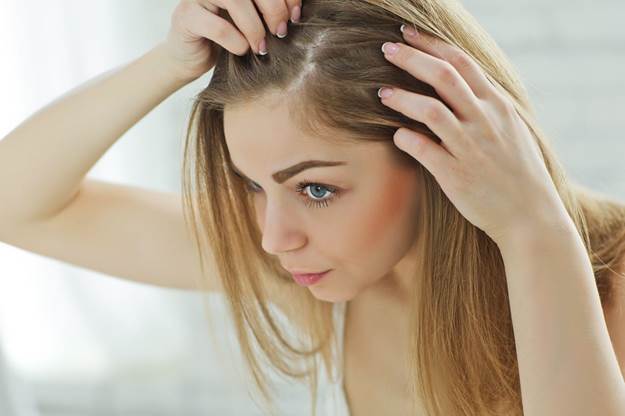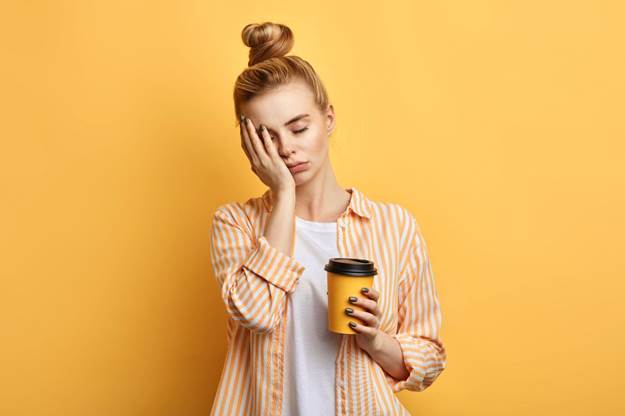Hair loss is a major problem for both men and women. For some, it’s an unavoidable genetic condition, but for others, it’s caused by external factors. In fact, several chemicals in hair products marketed towards improving our hair's condition can increase hair thinning and hair loss.
Understanding the Chemicals That Cause Hair Loss
Unfortunately, many chemicals found in different hair and skin products are harmful. Some can damage your hair immediately, while others will not show their true colors for years.
These chemicals will not cause your hair to fall out in massive clumps following use. Instead, they will slowly but severely damage your hair follicles from the inside, weakening your hair until they are too damaged to perform hair regrowth, leading to hair thinning and hair loss.
You may be wondering how millions use these products without noticing hair loss or thinning hair. Well, some people are more susceptible to the damage these chemicals cause. The following factors can increase your sensitivity to these chemicals, increasing the chances of hair breakage, hair loss, and scalp irritation:
- Specific allergy to one or more of the chemicals
- Prior chemical damage
- Prior heat damage
- Previous damage from hair dye
- Predisposition to hair loss
- Sensitive skin
- Thin hair shafts
- Short hair follicles
Your friend may be able to use paraben and sulfate shampoos daily without any issues, but that doesn’t mean you can. Your friend may also not see hair thinning until years from now. We recommend avoiding these harsh chemicals to be on the safe side.
7 Chemicals to Avoid for Hair Loss Prevention
Many, many chemicals can lead to hair loss. However, we rounded up seven sleepers. These chemicals are super common in products and homes, but many do not know they’re associated with potential hair loss and hair follicle damage. Learn what these seven sneaky chemicals are and how they cause hair loss.
1. Sodium Lauryl Sulfate (SLS)
Sodium Lauryl Sulfate is a tricky chemical, as it does not directly cause hair loss but generally irritates the scalp and hair follicles, which can eventually lead to hair loss. Sulfates are found in most cleaning and hygiene products, like hand soap, body wash, shampoo, and face wash.
2. Formaldehyde
Formaldehyde? The chemical they use to preserve dead bodies? That’s the one. Formaldehyde is a potent chemical in many shampoos and professional hair products for setting curls and updos. Unlike sulfates, formaldehyde will directly cause hair loss and is also known to cause allergic reactions and extreme scalp irritation.
Stylists use formaldehyde to reconfigure the hair shape, drastically damaging hair. While the FDA has not officially banned formaldehyde in cosmetic products, they recommend avoiding it, and many brands and businesses have stopped using it.
3. Parabens
Parabens are similar to sulfates; they strip dirt, oil, and grime to leave you feeling soft and clean. However, they do this through dehydrating hair, which can cause skin irritation, faded hair color, and hair loss. It takes a while for parabens to cause hair loss, but it’s proven that they cause significant damage even after one use.
It just takes a while to ramp up to hair loss. Parabens prevent bacteria from growing in cosmetics at the price of your hair's health. They’re a highly absorbable chemical so parabens will seep into your scalp, skin, and hair shaft.
Over time, your hair and skin will suffer, leading to hair loss and flaky, itchy skin. Parabens are also responsible for dandruff in many cases.
4. Phthalates
Phthalates are chemicals that act as emulsifiers, helping to bind different ingredients together to make a product. They’re also used as plasticizers, chemicals added to plastics during manufacturing to increase durability, longevity, flexibility, and transparency.
For example, phthalates are in polyvinyl chloride because they soften the plastic and make it more pliable. This man-made chemical has found its way into way too many products, including foods and cosmetic products.
This super harsh chemical can be found in shampoos. When applied to your hair, phthalates disrupt your hair’s hormone functions, leading to slow growth, breakage, and eventual hair loss. In addition to hair loss, they can cause eczema and dandruff on your scalp.
5. Propylene Glycol
Propylene Glycol is a synthetic liquid designed to absorb water. It’s used to make different fabrics and materials, like polyester. While this substance is in many cosmetic products, including hair and skin products, it’s quickly becoming apparent to the industry that the chemical is too harsh.
People use it on super greasy hair or severe cases of acne, and it works. But the long-term effects are harmful, including hair loss, scalp irritation, itchiness, and damaged hair structure. Short-term effects entice the substance, but the long-term effects prove it should be avoided.
6. Coal Tar
Coal tar does not sound like something that should ever go on your skin or hair, but it’s found in many hair products. This substance is a thick, dark liquid derived from coal.
The conversation around coal tar is complex and convoluted, as it’s used in medical treatments to manage psoriasis and seborrheic dermatitis. However, it’s also known to cause skin irritation and burns. It’s a highly caustic substance that is risky to use.
Some products meant to stop hair thinning and prevent hair loss contain coal tar extract as a main ingredient. So, what is the truth? More research is needed to come to a solid conclusion, but the potency and harshness of this substance suggest it’s too strong for human hair and skin.
7. Hydroquinone
Hydroquinone is a depigmenting agent used to lighten uneven coloration and dark patches on the skin. It works like bleach, a harsh chemical that can be dangerous. This chemical can cause hair loss when taken orally or topically.
It typically requires a prescription, but some over-the-counter products have it in the formula. The most common side effect of taking hydroquinone is lightened hair and skin, so it’s safe for most people.
However, many people seem allergic to hydroquinone, leading to dramatic hair loss, allergic reactions, and skin irritation. It’s especially severe if taken in too high of a dose.
How to Identify and Eliminate Hair Loss Chemicals
Avoiding these weird chemicals may be challenging if you are not an expert in the cosmetic industry or a professional chemist. We have some tips to help you detect and avoid these harsh chemicals so you can prevent or stop hair loss and thinning.
Read the Product Ingredients
Read the ingredients when you think about buying a product, whether it’s yogurt, dog food, or shampoo. It’s no murder mystery, but reading the entire back of a product, including the ingredients, will help you understand what’s going on or in your body. If you see any of these ingredients, find a different product.
Find Alternative Products
Researching popular anti-hair loss shampoos, conditioners, and hair products can help you find the best option to stop hair thinning and protect your hair follicle cells. You can also ask your stylist for recommendations based on your hair needs.
Use Organic Products
Only some people want to use organic products. For example, those with greasy hair may have difficulty feeling clean when using organic and all-natural products.
However, we recommend opting for organic products, as that 100% guarantees that none of the harmful ingredients will be present. Anything labeled organic or all-natural should be safe. But read the ingredient list, just in case!
Avoid Aerosols
When it comes to hair products like hairspray and setting products, they can be just as loaded with chemicals as shampoo. The only way to know if they contain harsh chemicals is to read the ingredients. In general, we suggest you avoid any products in aerosol cans because they are guaranteed to contain harmful chemicals.
Trust Your Nose
Our last tip for identifying harmful products is to take a whiff and see if the scent smells like chemicals. Is this the scientific way to determine if a product contains chemicals? No. But usually, all it takes is one sniff to tell how harsh the product will be. The products used on your hair and skin should not smell like a radioactive lab.
Avoiding Chemicals to Avoid Hair Loss
Unfortunately, the market is flooded with hair products teeming with harsh chemicals that no one can pronounce. Your hair was not meant to withstand these potent manufactured chemicals that cause hair loss, so our final words are to consider organic products to protect and nourish your hair.



